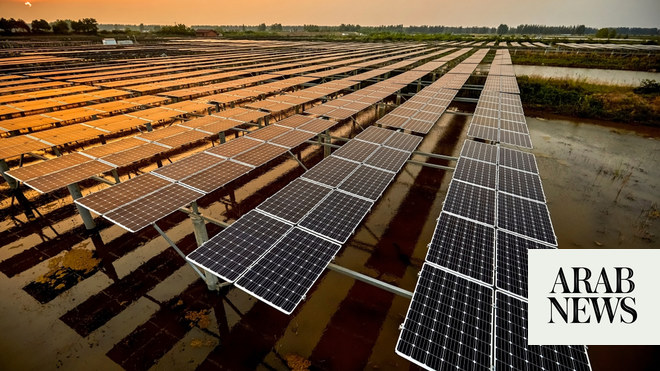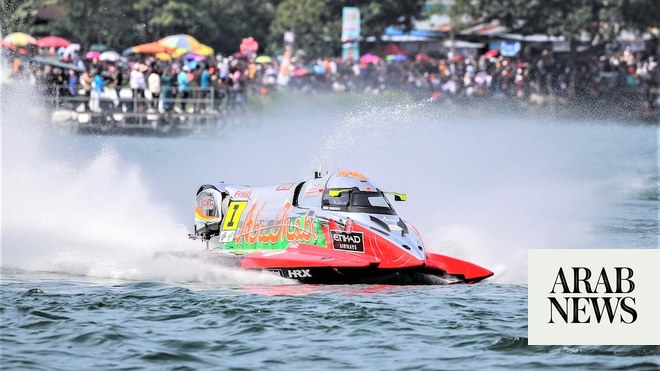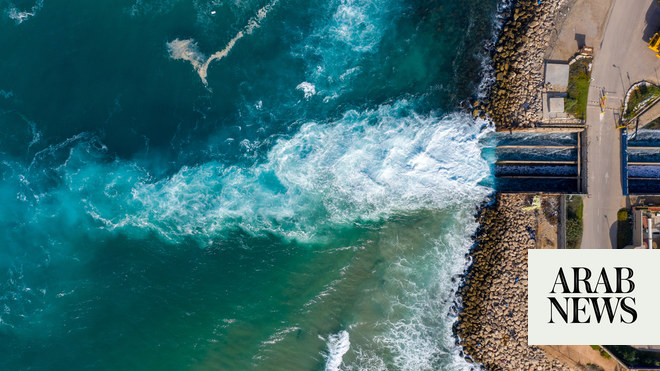
RIYADH: In line with UAE’s aim to achieve net-zero by 2050, Emirates Water and Electricity Co. has recommended a 606 percent rise in its solar power generation capacity by 2030.
In its Future Capacity Requirements report, the Abu Dhabi-based company said it plans to increase its total solar power generation capacity to 7.3 gigawatts, in addition to the development of 300 megawatts of Battery Energy Storage Systems.
The report forecasts the requirement for an additional 3 GW of solar power capacity by 2029 on top of the 1.5 GW procured from the Al Ajban Solar PV Project once it becomes operational in 2026.
The recommendations, approved by the Abu Dhabi Department of Energy, endorse continued investment in low-carbon intensive reverse osmosis water desalination technology to enable over 90 percent of the total water demand to be met using RO by 2030.
The implementation of these strategic renewable and clean energy projects will see the company’s average carbon dioxide intensity from electricity generation fall from 0.33kg per kilowatt-hour in 2019, to an estimated 0.19kg/kWh by 2029.
Othman Al Ali, CEO of EWEC, said: “Our growing portfolio of renewable and clean energy projects is accelerating the decarbonization of the country’s energy sector in line with the UAE Net Zero by 2050 strategic initiative whilst supporting the realization of the Abu Dhabi Department of Energy’s Clean Energy Target 2035.”
Thermal power projects using gas turbine technology are part of EWEC’s plans to support the transformation of the energy mix by serving as an effective bridge to a decarbonized energy sector that achieves the country’s energy transition objectives.
To meet reserve margin requirements, growing demand, and replace 7 GW of contract-expiring thermal cogeneration plants, the statement recommends securing a total of 9 GW of thermal capacity from open- or combined-cycle gas turbines through asset extension, reconfiguration or new development.
EWEC’s report also forecasts the need to proceed with the development of two low-carbon intensive RO desalination plants, Mirfa 2 Reverse Osmosis and the Shuweihat 4 Reverse Osmosis.
EWEC forecasts that over 90 percent of its water production will be generated from RO water desalination plants by 2030.
Bruce Smith, strategy and planning executive director at EWEC, said: “EWEC is making tangible progress towards further diversifying the energy mix and increasing the share of renewable energy and low-carbon intensive RO to ensure a secure, sustainable, and least-cost supply of water and electricity across Abu Dhabi and beyond.”











